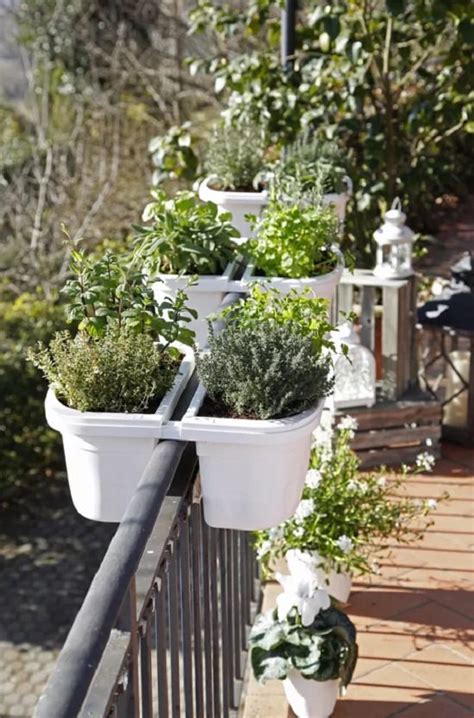Top 5 Creative Ways to Use Fresh Herbs from Your Balcony Garden in Cooking
Balcony gardening offers a unique opportunity to grow fresh herbs for cooking, even in small urban spaces. Whether you’re an experienced gardener or a beginner, the benefits of cultivating your own herbs go beyond just aesthetics. Growing fresh ingredients at home adds depth and flavor to your culinary creations while reducing your reliance on store-bought herbs. In this article, we’ll explore the five best ways to incorporate herbs from your balcony into your cooking, with practical tips to ensure successful gardening in an urban environment.
Key Concepts
- Herbs for Cooking: Fresh herbs enhance the flavors of dishes, making them a crucial part of any cooking enthusiast’s toolkit.
- Balcony Gardening: Growing herbs in small spaces like balconies using containers or vertical systems.
- Culinary Uses: How herbs can be integrated into various dishes for added flavor and aroma.
- Urban Gardening: Adapting traditional gardening practices to urban environments where space is limited.
- Plant Selection: Choosing the right herbs that thrive in container gardening settings.
Historical Context
Throughout history, herbs have played a critical role in cooking, medicine, and culture. From ancient civilizations like the Egyptians and Greeks, herbs such as basil, rosemary, and thyme were highly valued for their medicinal properties and ability to preserve food. In medieval Europe, kitchen gardens were common in households, providing essential ingredients for cooking and home remedies. Urban gardening, especially on balconies, is a more recent trend influenced by the need for sustainability, local food sourcing, and the challenges of modern living spaces.
Current State Analysis
Urbanization has led to smaller living spaces, especially in cities, where balconies are often the only outdoor space available. Balcony gardening allows people to grow fresh ingredients at home, contributing to a more sustainable and health-conscious lifestyle. Herbs like mint, oregano, basil, and parsley are well-suited for container gardening and thrive in these conditions, offering a continuous supply of fresh flavors for your dishes. However, challenges such as limited space, weather conditions, and pest control can impact the success of balcony herb gardening.
Practical Applications
Here are five practical ways to use the herbs you grow on your balcony in your daily cooking:
1. Enhance Flavors in Soups and Stews
Fresh herbs like thyme, rosemary, and parsley add robust flavors to soups and stews. Chop your balcony-grown herbs and add them towards the end of cooking to retain their vibrant taste.
2. Create Infused Oils and Vinegars
Infusing oils or vinegars with fresh herbs is a simple way to elevate salads, marinades, and dressings. Use herbs like basil, rosemary, or thyme, and allow them to steep in olive oil or vinegar for a week before using.
3. Fresh Herb Pesto
Basil is the most common herb for making pesto, but parsley, cilantro, or even mint can be used. Blending herbs with garlic, nuts, and olive oil creates a fresh, flavorful sauce perfect for pasta or as a spread.
4. Herbal Teas and Beverages
Mints, lemon balm, and chamomile grown on your balcony can be brewed into herbal teas. Fresh herbs also make great additions to cold beverages like lemonade or cocktails for a refreshing twist.
5. Herb-Infused Butters and Spreads
Herb-infused butters or cream cheese spreads can elevate simple bread or crackers. Use herbs like dill, chives, or thyme, mix with butter, and refrigerate for a rich and aromatic spread.
Case Studies
| Herb | Best Culinary Use | Growing Tips |
|---|---|---|
| Basil | Pesto, sauces, salads | Requires full sunlight and regular watering. |
| Mint | Teas, beverages, desserts | Thrives in partial shade and moist soil. Best grown in containers to prevent overgrowth. |
| Thyme | Soups, stews, meat marinades | Prefers well-drained soil and plenty of sunlight. |
| Parsley | Garnishes, salads, sauces | Grows well in both sun and partial shade, needs frequent harvesting. |
| Oregano | Pasta sauces, pizza, grilled meats | Requires full sun and minimal watering once established. |
Stakeholder Analysis
Balcony gardening for culinary uses benefits several stakeholders:
- Home Cooks: Access to fresh herbs enhances the quality of meals.
- Urban Dwellers: Provides a connection to nature and sustainable living in cities.
- Environmentalists: Reduces the carbon footprint of transporting store-bought herbs.
- Food Enthusiasts: Adds a personal, fresh touch to dishes, boosting flavor and nutrition.
Implementation Guidelines
To successfully grow herbs on your balcony, follow these guidelines:
- Choose the Right Containers: Ensure your pots have adequate drainage and are large enough for the herbs to grow.
- Understand Sunlight Needs: Different herbs require varying amounts of sunlight. For example, basil and rosemary need full sun, while mint can tolerate partial shade.
- Use High-Quality Soil: Potting soil mixed with compost provides the right nutrients for your herbs to thrive.
- Watering Schedule: Most herbs need consistent watering, but avoid waterlogging the soil. Monitor for signs of over- or under-watering.
- Fertilization: Use organic fertilizers to promote healthy growth, but don’t overdo it as it can lead to poor flavor development.
Ethical Considerations
Ethical considerations in balcony gardening include using organic, sustainable practices and ensuring minimal environmental impact. Avoid harmful pesticides that can harm local ecosystems, and use eco-friendly materials for your gardening supplies. Additionally, growing your own herbs reduces reliance on mass-produced agricultural practices, which often contribute to environmental degradation through extensive use of water, pesticides, and transportation emissions.
Limitations and Future Research
While balcony herb gardening is practical for urban environments, it has limitations. Space and sunlight constraints can limit the variety of herbs you can grow. Future research could focus on optimizing vertical gardening systems and exploring hydroponic or aquaponic techniques for herb cultivation in limited spaces. There is also potential in integrating technology, such as automated watering systems and smart gardening apps, to make urban gardening more accessible and efficient.
Expert Commentary
According to experts in urban gardening, starting a balcony herb garden is one of the most rewarding ways to bring fresh, organic ingredients into your kitchen. While it requires attention to detail and care, the payoff in flavor and convenience is well worth the effort. Balconies, often underutilized, provide enough space to grow several varieties of herbs that can enhance your cooking and lifestyle. With proper planning and execution, you can enjoy fresh herbs all year round, making every meal a culinary delight.


